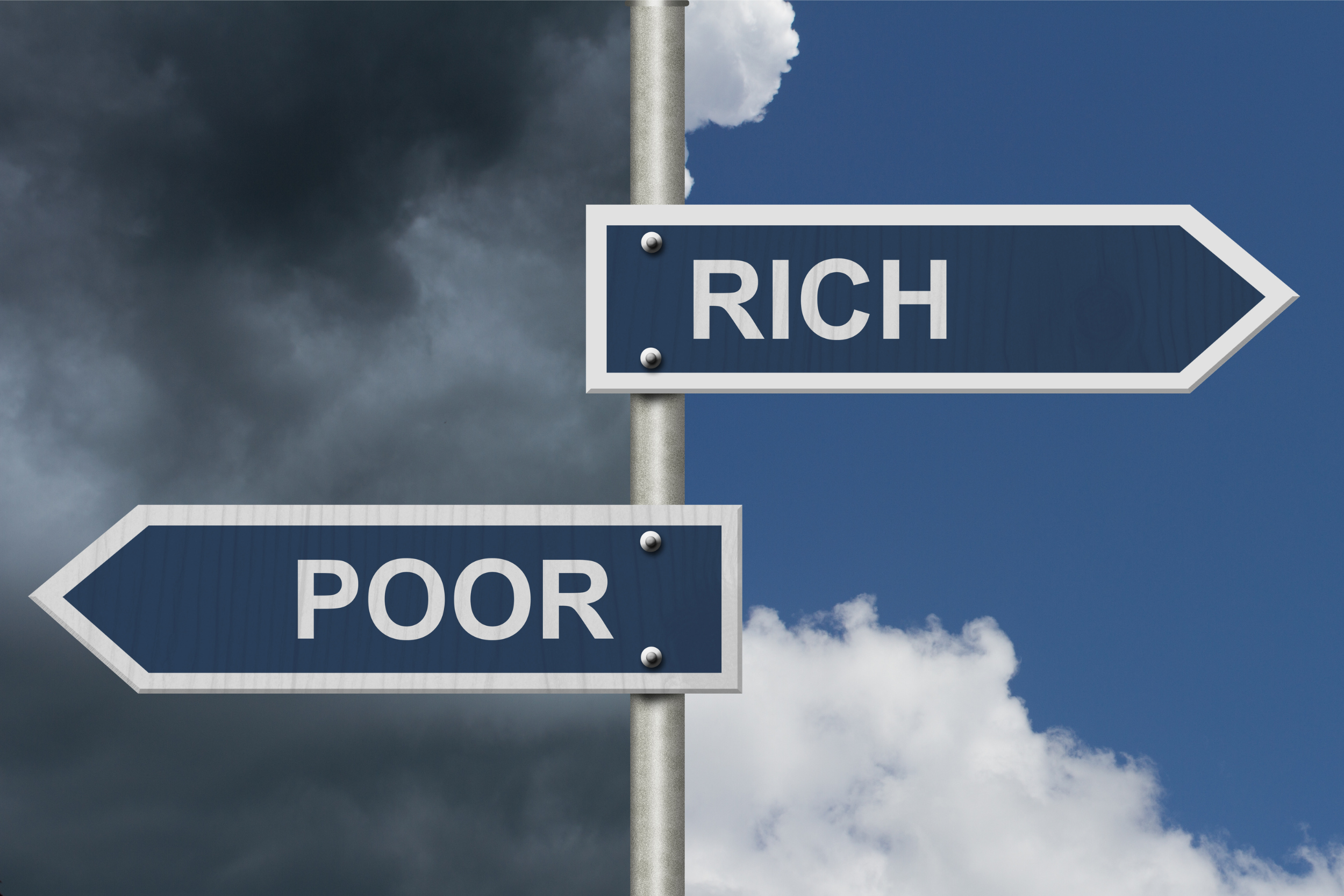Who are the poor and what can I do?
If we want to understand how to think about our money well as Christians, we need our thinking to be governed by Scripture. But we also need to know something of how economics functions in our world. We live in a world with different economic structures to that of the Bible and so understanding something of those differences allows us to apply Scriptural principles to a range of modern situations as we seek to follow Jesus in all of life.
One example of this is Scripture’s clarity regarding our need to care for the poor. Not only an Old Testament priority, Jesus, a poor man while on earth, draws our attention time and again to the poor, and it remains a key priority of the early church[1] (Lev 25:35; Mark 14:7; Luke 9:58; 2 Cor 8:9; Gal 2:8-10).
If we are to follow the Scripture’s call on us to care for the poor, we will need to understand something of the economy to understand who the poor are and how we might best serve and care for them.
Agrarian Economy
The world of the Bible was agrarian. Most people worked hard with their hands to provide food for themselves and their families. Even a wealthy man, such as Boaz in the book of Ruth, not only managed but was himself involved in food production (Ruth 3:2). As instructed by the Law, Boaz enabled Ruth to glean produce rather than directly giving her money as we might today (Ruth 2:15-16; Lev 23:22). Money was by no means irrelevant (Lev 19:13) but the economy was far less money-based than it is today.
In one sense, an agrarian economy made it simple to provide for the needs of the poor. The Law provided a clear and structured way to ensure that everyone was able to eat enough food.[2] Our social structures today can make it more complex to care for the poor.
Industrialisation
Industrialisation shifted how the economy worked in the West[3], making it more involved to respond to the poverty of those in our society. This economic and technological revolution effectively moved us from an agrarian based system towards an economic structure far more like the one we are familiar with today.
Industrialisation benefited the West in many ways but did not come about without a cost. The access more people had to more food and basic goods without supply interruption was and remains a benefit to all classes of people. Even the poorest in Western society lives better today than even some wealthy people prior to industrialisation. Yet, someone like Charles Dickens was able to become a popular novelist partly because he identified so many difficulties the changes in economic and social structures were creating for ordinary people. Abject poverty and chronic unemployment led to social decay. Factory owners destroyed lives carelessly.[4] Yet, at the same time, there exist accounts of factory owners caring for the needs of their workers in significant ways that were unheard of for the time. For example, these (often Christian) men built decent housing for their workers and provided medical attention at their own cost.[5] The way industrialisation changed the economy could enable commercialisation that crippled society or create opportunities and meet needs.[6] Responding to the needs of the poor was not as simple as it had been, but Christians could and did respond in generosity and kindness, in the context of a different economic structure to that of the Bible.[7]
Society and its economic structure have continued to change since industrialisation. Technology continues to transform how we live and work, and some consider this to be the biggest driver of economic transformation within our society.[8] These advances continue to show the same kind of divide that the era of industrialisation demonstrated: there is the opportunity for greed or generosity and the attendant deprivation and benefits that flow from that.
Technology, however, is not the only basis for economic transformation in our society. As a society we are more aware of how our economy works, and this in turn affects how the economy works, not least in the way we insist on continued economic growth.
Our economic context
The economy works differently in our time and place, and society has shaped our expectations so that many of us expect the economy should be growing, and that our standard of living should keep on rising. If it is not, the government is thought to have failed.[9] The economy is influenced by employment levels, inflation rates, stock exchange levels and the growth of national income per capita. Governments (and political perspectives) vary as to the extent of their management in these variables, but all have an impact on the stability and growth (or otherwise) of a society’s economy.[10] Through the 20th century, the economy has also come to be influenced by greater social awareness of how the economy works, making our ability to predict economic changes even more complicated.[11]
One clear shift in our economic thinking from Biblical times is how we define ‘poverty’. Most of us are familiar with the concept of the ‘poverty line’ in which the economically disadvantaged are defined as those with an income 50% of the median household income or below.[12] This shapes our understanding of what ‘poor’ means and influences how we understand the term as it is used in Scripture. By defining the poor as a percentage of the population, our society shows that it sees poverty as a comparative state as well as one that is likely to occur. In real terms, for example, those who struggle to put food on the table may be living ‘above the poverty line’ during economically difficult times. It is worth realising how we are shaped by our society in our understanding of what poverty is in our time and place. This means we might need to reconsider how we have understood Scripture to instruct us on this issue. We need to clearly identify the poor to help them.
Similarly, we need to understand something of how the economy works to be aware of which policies will benefit the poor. Windfall type handouts that often accompany imminent elections may be immediately beneficial but cloak an unwillingness to deal well with difficult policies that may benefit the poor in the longer term. Similarly, activism that may appear to ‘change things’ at a structural level, may in fact diminish long term pathways out of poverty.[13] Considering public policy and structures as they relate to the poor helps us to extend what it means for us to be generous by evaluating how we use our political and social influence. We will consider personal charity in a later article, but it is worth noting here that as Christians working together, we have the capacity to do more than provide individual financial relief. We can use our vote carefully, speak into matters of public policy where we are able, and work together on long term relief projects.[14]
The Scriptural principles of avoiding greed and being generous to those in need along with avoiding anxiety regarding money by actively trusting God with all of life continue to be the simple yet spiritually demanding response that the Lord calls us to. This enables us to have the kind of loving reflexes towards our neighbour regardless of the economic structure in which we find ourselves.[15] Despite changing economic systems and situations, these reflexes from Scripture continue to be relevant for us today. Yet, there are many specific and complex situations where Scripture does not give explicit instructions. One such example is how we might understand home ownership. We will turn our attention to this in the next article.
[1] The Gospel in Society Today committee is grateful for the time and expertise of Dr Andrew Bain. Andrew is QTC Vice Principal, Ethics lecturer, and former economist. Although any errors remain the responsibility of the writer, the wisdom he provided will be reflected throughout these articles and from time to time will be directly referenced.
[2] The prophets regularly report that this was not followed (E.g. Isaiah 3:14-15).
[3] See for example, The Industrial Revolution and British Society (Ed Patrick O’Brien and Roland Quinault) 1993
[4] Hard Times by Charles Dickens is one example of the multiple ways in which both the economic and social structures were used to impose a life of privation on the poorer class in society.
[5] One example of this approach to manufacturing is seen in the life of Titus Salt.
[6] Economics in Christian Perspective: Theory, Policy and Life Choices by Victor V. Claar and Robin J. Klay, (IVP: Downers Grove, Illinois, 2007) p.30-31, 44
[7] Of course, not all did and many of their effects were imperfect.
[8] Claar and Klay, op. cit., p. 144; technology enables globalisation which has had (and will continue to have) a profound impact on economies.
[9] Observed by Rev Dr Andrew Bain, and clearly observable in a range of political advertising.
[10] Claar and Klay, op. cit., p. 124
[11] Ibid., p. 129
[12] Australia does not have an official ‘poverty line’ measurement. This percentage is one adopted by the OECD. (See Note 7: Poverty in Australia 2020: Overview (HTML version) – Poverty and Inequality (acoss.org.au)) Also, see ‘Measuring Poverty’ in Chapter 2 – Defining and measuring poverty – Parliament of Australia (aph.gov.au) for a discussion of the difficulty of identifying true poverty.
[13] Claar and Klay, op. cit., p. 153, 158-9
[14] Claar and Klay op. cit., have some excellent examples of this on page 87.
[15] In line with the Westminster Confession of Faith XVI.1-2
Study Questions
Read Luke 10: 25-37
- Why does the expert in the law ask Jesus questions? What is his goal?
- Retell the story of the Good Samaritan in your own words.
- What is the point of the priest and the Levite as characters in this story? What does Jesus show us with their actions?
- What did the Samaritan (presumably his enemy) do for the beaten-up man? List all that it costs him.
- After Jesus asked the expert to identify the true neighbour, how did the expert describe him? What does this tell you about the nature of love?
- How does Jesus act as our ‘Good Samaritan’?
- Who within the group of ‘neighbours’ you have could benefit from your generosity? How might you show this to them? How will you need God’s Spirit to enable you to this, or how will you need to pray about this?

